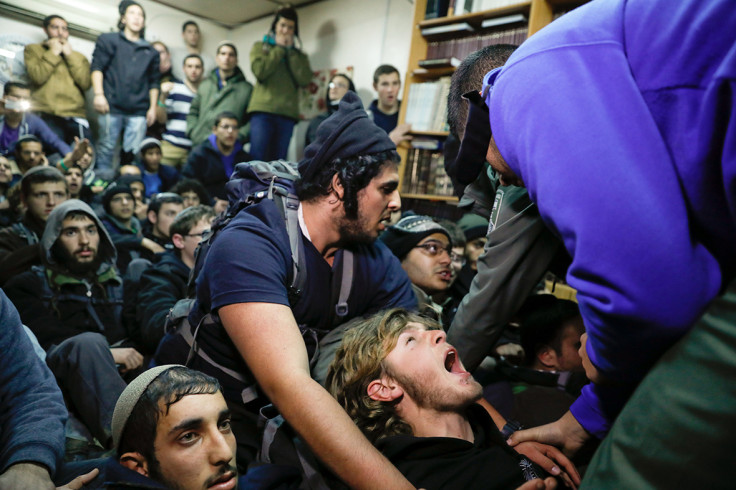Activists resisting Amona evacuation clash with police and barricade themselves inside synagogue
Hundreds have resisted evacuation from the West Bank outpost ruled illegal by the Israeli Supreme Court.

Israeli security forces said they had almost completed the evacuation of the Amona outpost on the West Bank on Thursday (1 February 2017) after activists barricaded themselves into the community's synagogue. A number of teenagers have reportedly barricaded themselves in the settlement's synagogue, with negotiations with security forces breaking down overnight.
Police said that 24 officers had been injured in clashes on Thursday after a dozen activists were dragged by force from the structure, reported the Jerusalem Post.
Eighteen civilians had also been injured and seven arrested following the clashes on Wednesday and Thursday, police said.
The settlement is built on Palestinian private land, and Israel's Supreme Court has ruled that it is illegal and must be evacuated.
Hundreds of activists gathered to resist the evacuation as police moved in to enforce the court order, hurling stones at officers. Removals started on Wednesday and continued overnight.
The clashes came after the Israeli parliament approved plans to build 3,000 more homes in settlements in the West Bank. In recent weeks US President Donald Trump has indicated he may support new settlement building programmes.
Around 140 Israeli settlements have been built in territory seized in the West Bank and east Jerusalem in 1967. The settlements have been declared illegal by the UN, though Israel disputes this. Around 95 outposts – settlements built without Israeli government permission – have been constructed in the West Bank.
The settlement, which was built in 1996, is located near the settlement of Ofra, north-east of Ramallah. Most of the residents of the settlement have reportedly been relocated to Ofra.
Education Minister Naftali Bennett has introduced a bill to retrospectively legalise the settlement, however legal experts believe it is likely to be overturned by the Supreme Court if passed.
© Copyright IBTimes 2025. All rights reserved.






















